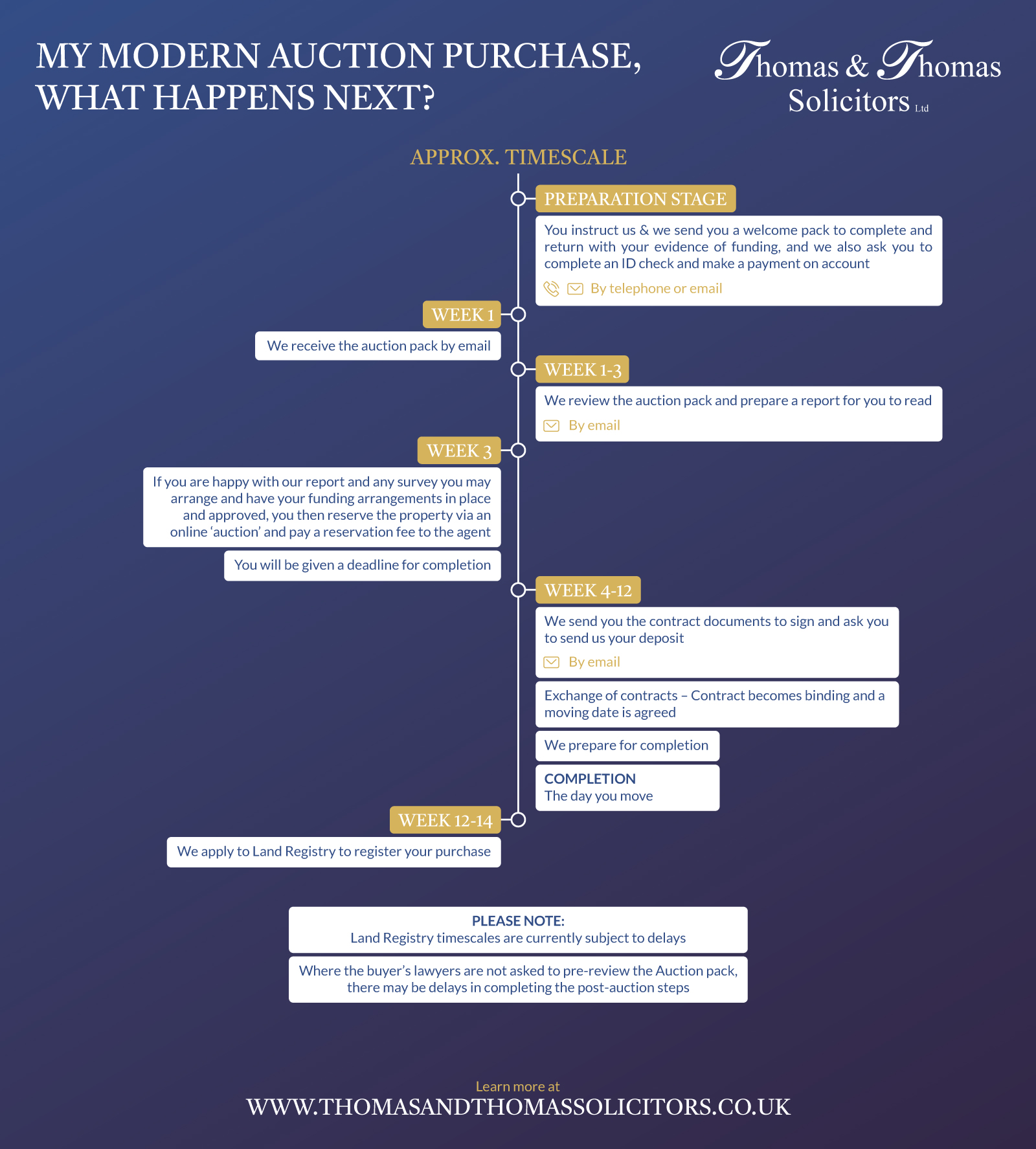Property can be sold in several ways, but have you ever considered selling your home in an auction? In January 2024, the number of properties sold under the hammer grew by over 49% compared to last year, and the market shows no signs of slowing down.
A property auction is a live bidding process, held either online or in person. Potential buyers compete to win a property up for sale by outbidding each other. However, there are variations of property auctions, and it’s important to understand the difference.
Putting your property into an auction is an exciting and potentially cost-effective alternative to a regular sale, and, while it may still be the path less travelled, the apparent uptick in property auction sales reflects a growing interest in buying and selling properties at auctions. But how do you go about it?
In this blog, we will provide a comprehensive overview of the various kinds of property auctions and their benefits, as well as how solicitors can assist in the process. We hope to leave you with a better understanding of your options and, most importantly, the knowledge to begin your auction journey.
Traditional Auctions vs. Modern Auctions
Traditional Auctions
Traditional auctions usually take place in person at an auction house or online, with several properties up for sale on a set day. They are often popular among property professionals who understand the system and can confidently make bids, as it is a rigid process with little room for error. As soon as the gavel falls and the auction is complete, contracts are exchanged and buyers are expected to pay a deposit that day (usually 10%), they then have approximately 28 days to complete the purchase.
Aside from this quick turnaround, the main appeal of selling your property in a traditional auction is the added layer of security; due to the strict rules around buying at auction, those in attendance are often ready to pay either on the day or imminently, reducing the likelihood of a lengthy process and buyers pulling out during the completion journey.
Traditional auctions are a good option for sellers who need to make the sale swiftly, and buyers who prefer cash. However, their fast-paced nature can intimidate inexperienced sellers and does not leave much time for a potential buyer to secure a loan or mortgage. This narrows down the pool of people who would be able to afford the property.
Modern Auctions
Modern auctions, on the other hand, take place purely online and are a little more flexible. Unlike traditional auctions, contracts do not have to be exchanged on the day of the bid, so it is not an immediate commitment. Instead, buyers have 56 days to complete the transaction, meaning that, while they are still committed to buying the property, they have a little longer to finalise a mortgage agreement.
Along with that same security blanket as a traditional auction, modern auctions are appealing for their online convenience and the additional time it affords potential buyers to secure their funding.
The lengthier process of a modern auction may be beneficial if you are looking for a quicker process than selling through an estate agent, but still need some time to get your affairs in order. However, there is no guarantee that your potential buyers will commit to the purchase, as they are not legally bound to complete it.
Benefits of Auctioning Your Property
But why consider selling your property through auction at all? The process can be much faster and more secure than a traditional house sale, which may take several months in a property chain and can be subject to change depending on buyers pulling out. The journey itself can also be far easier and less stressful than selling through an estate agent, with less fees to pay, demands to negotiate and marketing to do.
What’s more, auctions often attract ambitious property investors and builders that are more likely to show interest in unusual properties or properties that need a little work done. The competitive spirit of the market encourages multiple bids, which may lead to a higher selling price than you were expecting.
How Solicitors Assist in the Process
Solicitors can help with a range of legal matters, and that includes the process of selling a property at an auction. To prepare, a solicitor will send you a welcome pack to complete and return with evidence of funding to prove you are able to pay the relevant auction fees.
Once initial checks, searches and payments are complete, and you have chosen the auction house you would like to sell through, an auction pack will be sent to your solicitor, which includes property details ahead of the sale itself.
Depending on what type of auction you are pursuing, the next few steps differ.
- Before a traditional auction takes place, the auction pack will be shared with any potential buyers and their legal representatives. Your solicitor can also deal with any pre-auction enquiries on your behalf. The auction itself will then take place and, if there is a buyer, contracts will be exchanged. The buyer will also pay you a deposit, and after it goes through, you will agree on a completion date.
- In a modern auction, we will write a report on the auction pack and share this with you. In the meantime, you can arrange any necessary surveys of the property. You would then reserve your property in the online auction by paying its agent a reservation fee. If a buyer is found, we will send you the contract documents to sign via email and then exchange them with the buyer. Then, a completion date will be agreed.
Selling your property via auction is generally much faster than going through an estate agent and the property ladder. Property auctions are an exciting opportunity for sellers who are comfortable with the possibility that their sale is not guaranteed. Selling your property in an auction should be considered carefully if you have the funds to do so, although it’s best to have other options in mind just in case the auction is not successful.
If you need help and support with selling your property through auction, our team of specialists at Thomas and Thomas Solicitors provide a comprehensive range of conveyancing services. For further support and advice, contact us here.







